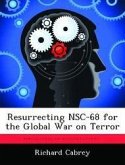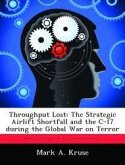The stunning military victories of OPERATIONS ENDURING FREEDOM and IRAQI FREEDOM have been a tribute to the prowess of the American armed forces. When coupled with the success of the First Gulf War, these victories have drawn renewed attention in military thinking to the promise inherent in the concept of decisive battle. At the same time, however, the likely protracted struggle associated with the contemporary Global War on Terror (GWOT) seemingly renders conventional notions of rapid military decision ephemeral. This study considers the theoretical underpinnings of decisive battle and their practical implications for the GWOT. Over the course of description and analysis, decisive battle is defined as a single confrontation or campaign in which a military force compels its enemy to accept the intended political or social changes necessary for conflict termination. This study accepts as its theoretical point of departure the writings of classical theorists from Sun Tzu through Frederick the Great, Clausewitz, and Jomini. Over the course of the 19th and 20th centuries, as the nature of warfare continued to evolve, so also did the doctrine of decisive battle. The current doctrine of the United States military, while not fully embracing the concept, still finds some basis in it. With limited reference to case studies, this study analyzes the impact of decisive battles on three wars in American military history that retained shared characteristics with the GWOT. In a number of ways, the American Indian Wars, World War II, and the Cold War were all similar to the Global War on Terror. In particular, these wars saw the American military engage multiple adversaries across vast distances in protracted struggles that traced their roots to contending ideologies. In light of theory and the hard lessons of selected application, this study examines the relevance of decisive battle to the Global War on Terror. Comparison of the GWOT with historical case studies demonstrates that
Hinweis: Dieser Artikel kann nur an eine deutsche Lieferadresse ausgeliefert werden.
Hinweis: Dieser Artikel kann nur an eine deutsche Lieferadresse ausgeliefert werden.








